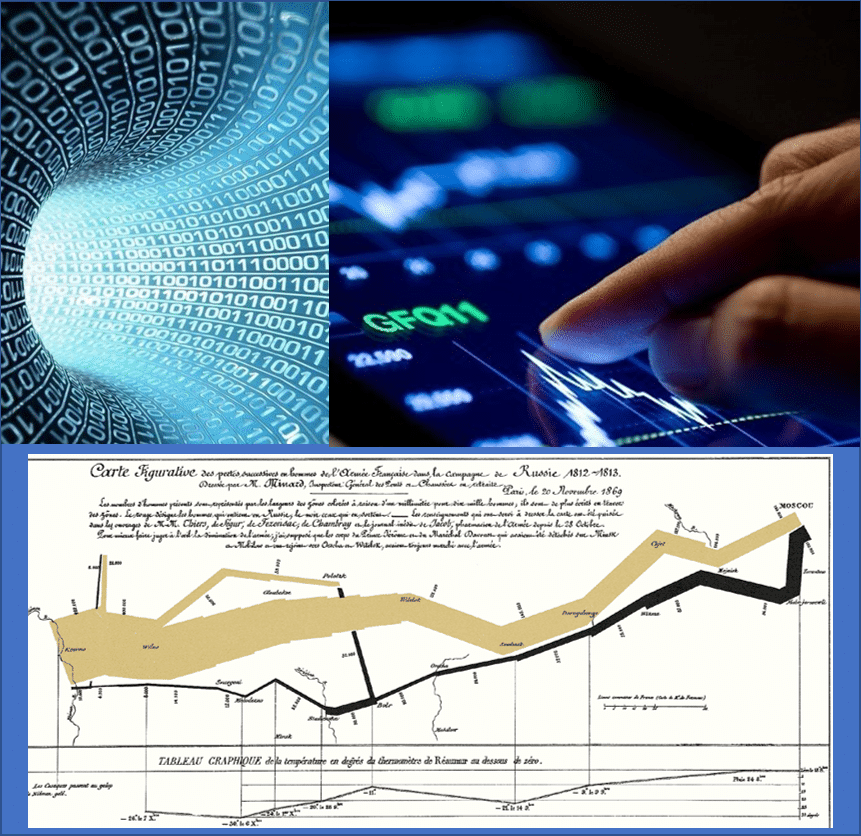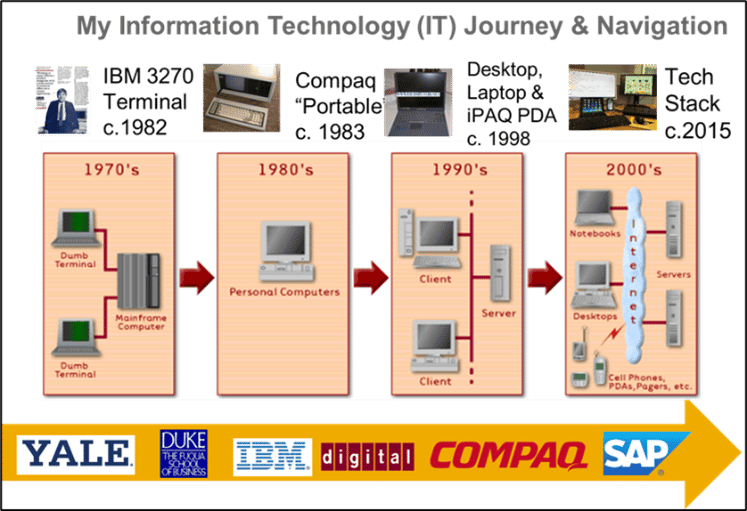
The Geeks Won Part Two: New Perspectives on Data Science
Nearly three years ago, while working in SAP Global Marketing, I wrote a BLOG that has stood the test of time – “The Geeks Won: The Rise of Marketing Analytics, Performance Management and Data Science”.
It was near the end of a long and successful run working for SAP Digital Business Services Marketing, focused upon the art and science of marketing analytics with a bit of thought leadership mixed in.
I looked back and saw the reference that more than a quarter century had passed since the term “business intelligence” (BI) became mainstream in the lexicon of IT and marketing organizations.
This fundamental concept of transforming data into knowledge for better, informed decision-making is largely unchanged, while the underlying technology has significantly matured. Let’s see how…
Quick Takeaways:
- Martech tools are taking advantage of the combination of business intelligence, big data, and marketing analytics.
- The role of Data Scientist has taken on new importance in the context of marketing.
- Visualization can help the whole organization understand the importance of data.
Business Intelligence Meets Data Science
Fast forward three years. Nearly a year ago I joined the team at Dresner Advisory Services, reunited with the “father of BI” Howard Dresner who I first worked with more than 30 years ago at DEC.
In the earlier post I talked about how data science was really coming into its own when combined with BI, data, and analytics, and how it was specifically advancing the field of marketing performance management. And with it a new generation of next-generation marketing analytics, enabling a whole new group of marketing professionals who combine Marketing Technology (MarTech) with data science.
Our most recent Dresner Advisory Services Luncheon Learning monthly webinar was focused upon data science.
We highlighted its maturity, how it is being leveraged within organizations, its relationship to data literacy, and ultimately, how it contributes to the success of an organization’s BI initiative. The question is no longer “why” data science, and the dialogue has shifted “how” to best leverage it.
Yes “the geeks still won,” and this mix of both left- and right-brained skills are fueling creative new skillsets, often combined with martech.
I was quickly reminded of the characteristics of a successful data scientist. As we have seen the rise of the “Modern Marketer” we have seen parallel rise in of the “Modern Data Scientist.”
The Role of the Modern Data Scientist
According to our webinar guest speaker, Dr. Theresa Johnson, a Data Scientist from Airbnb, they may be in a formal role, embedded within a function/team, or even as “citizen data scientist” doing this part-time as part of their overall job.
They bring an eclectic skill set to the table — techniques and theories drawn from many fields within the broad areas of mathematics, statistics, and computer science. A data scientist draws upon their unique expertise, and most likely are experts in a few of areas and proficient in others. The term eclectic very much applies here.

Theresa talked about her own journey to her role as a Data Scientist. This made me think about my own unique journey.
BI Technology Evolves with Martech
I leveraged a well-used image from many webinar and conference speaking sessions, showcasing my own unique journey across organizations and technology, overlaid against the evolution of computing from early mainframes, to client/server, to the Internet and cloud computing, and with that, the advanced and mature technologies we have today including modern BI, analytics, and martech.
So much has changed and evolved — from early number crunching with decision support system (DSS) tools such as SAS, SPSS, and IRI EXPRESS to innovative client/server solutions to today’s modern cloud-based solutions.
We evaluate strategic BI technology at Dresner Advisory Services, and this landscape has profoundly changed in the 35 plus years of this journey.
And with it an evolution of the martech landscape, which I explored in a post with the “father of MarTech” Scott Brinker of HubSpot. Whenever I am asked what has changed over this time my answer is quite simple – “everything”!
Data Literacy Unites Everything
Data literacy factors directly into data science. Our speaker Theresa touched upon this and how data literacy — defined as comfort working with, manipulating, analyzing, and visualizing data — is a key foundation for ALL data-informed decision making, and that includes what we discussed about data science.

At that point I thought back to a data literacy roundtable discussion Jonathan Scharr, who leads BI and analytics for Middlesex Health, and I gave at this year’s virtual Dresner Advisory Services Real BI Conference. We used a rather famous example “Napolean’s march” used by Ed Tufte, my economics professor at Yale to illustrate the concept of data visualization, and how this is but one way we can make our organization and team more data literate.
This is a classic “a picture tells a thousand words”, and in our session, we showcased what we need to do to build a solid foundation of Data Literacy, including enabling self-service tools, how data scientists of varying expertise come together, and much more.
Not surprisingly, Tufte is called by many the “father of Data Science” and is extraordinary to have studied with him and work with the “father of BI” Howard Dresner. Lightning does not strike often twice in the same place, so it is quite an honor to have had this experience.
Theresa discussed in detail the concept of the “citizen data scientist” – not a full-time member of the data sciences team, part of a functional role/team, and who contributes to the overall data science effort in a part-time capacity.
Using BI and MarTech tools, their work can help data scientists to extend the reach of analytics in an organization, doing the less complex data science tasks, and bringing a functional business perspective to data science.
The latter can help to translate business issues into data science solutions, work with key stakeholders throughout the organization, and help build additional solutions requirements, and ultimately help drive data-informed decision-making.
I have been asked how one gets started and become a “citizen data scientist.” It starts by raising your hand, asking for access to different sources of data that will help your team’s projects and focus areas, and becoming proficient in BI and martech solutions.
This is an excellent example of the “Marketing Technologist”, another concept championed by Scott Brinker — a Marketer with technical skills, a higher level of data literacy, and working with a set of martech tools (including the organizations martech stack).
We champion the use of governance, and it is a key is to ensure that it is included and part of the regular project review and reporting cadence. And the “regular data scientists” themselves are key to the team of experts that oversee how everyone uses data, itself a key part of successful governance.
So – several years later, the Geeks have still won; in fact, we stopped keeping score years ago.






